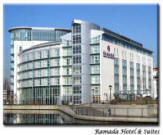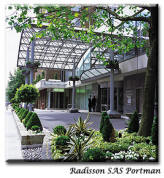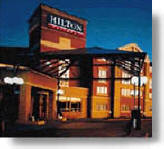United Kingdom
England
Northern Ireland
Scotland
Wales
London England
Find a premier Hotel & Resort at
Hilton Hotels.
or book Sheraton Hotels and Resorts
|
England
Background: |
England
(Latin Anglia), political division of the island of
Great
Britain, the principal division of the United Kingdom of Great
Britain and Northern Ireland.
England occupies all of the island east of
Wales and south of
Scotland, other divisions of the island of Great
Britain.
Established as an independent monarchy many centuries ago,
England in time achieved political control over the rest of the
island, all the
British Isles, and vast sections of the world, becoming the
nucleus of one of the greatest empires in history. The capital,
largest city, and chief port of England is London, with a population in 1996 of 7 million. It is also
the capital of the United Kingdom and the site of the
headquarters of the Commonwealth of Nations.
One of the principal physiographic features of
England, as well
as of the entire island of Great Britain, is the deeply indented
coast. Most of the indentations are excellent natural harbors,
easily accessible to deepwater shipping, a factor that has been
decisive in the economic development and imperial expansion of
England. By virtue of the high tides that prevail along the
eastern coast, a number of rivers and their estuaries provide
this region with safe anchorages. The most important of these
belong to such ports as Newcastle upon Tyne, on the Tyne River;
Middlesbrough, on
the Tees River; Hull, on the
Humber River; Great Yarmouth, on the estuary of the Yare
River; and London, on the Thames River. The most important
harbors on the southern coast include those of Dover,
Hastings,
Eastbourne,
Brighton,
Portsmouth,
Bournemouth, and
Plymouth. The western coast, considerably more broken than
either the eastern or southern coast, also has numerous
anchorages. Of outstanding commercial importance are the harbor
of Bristol, at the confluence of Bristol Channel and the Severn
River; and Liverpool Harbor, at the mouth of the Mersey River. |
|
Great Britain
Background:
|
Great Britain, the dominant industrial and maritime power of the
19th century, played a leading role in developing parliamentary
democracy and in advancing literature and science. At its
zenith, the British Empire stretched over one-fourth of the
earth's surface. The first half of the 20th century saw the UK's
strength seriously depleted in two World Wars. The second half
witnessed the dismantling of the Empire and the UK rebuilding
itself into a modern and prosperous European nation. As one of
five permanent members of the UN Security Council, a founding
member of NATO, and of the Commonwealth, the UK pursues a global
approach to foreign policy; it currently is weighing the degree
of its integration with continental Europe. A member of the EU,
it chose to remain outside the European Monetary Union for the
time being. Constitutional reform is also a significant issue in
the UK. The Scottish Parliament, the National Assembly for
Wales, and the Northern Ireland Assembly were established in
1999, but the latter is suspended due to bickering over the
peace process. |
|
|
Ethnic groups:
|
English 81.5%, Scottish 9.6%, Irish 2.4%, Welsh 1.9%, Ulster
1.8%, West Indian, Indian, Pakistani, and other 2.8%
|
|
Languages:
|
English, Welsh (about 26% of the population of Wales), Scottish
form of Gaelic (about 60,000 in Scotland) |
|
Dependent areas:
|
Anguilla, Bermuda, British Indian Ocean Territory, British
Virgin Islands, Cayman Islands, Falkland Islands, Gibraltar,
Guernsey, Jersey, Isle of Man, Montserrat, Pitcairn Islands,
Saint Helena, South Georgia and the South Sandwich Islands,
Turks and Caicos Islands |
|
Flag description:
|
blue field with the red cross of Saint George (patron saint of
England) edged in white superimposed on the diagonal red cross
of Saint Patrick (patron saint of Ireland), which is
superimposed on the diagonal white cross of Saint Andrew (patron
saint of Scotland); properly known as the Union Flag, but
commonly called the Union Jack; the design and colors
(especially the Blue Ensign) have been the basis for a number of
other flags including other Commonwealth countries and their
constituent states or provinces, as well as British overseas
territories |
|
Currency:
|
British pound (GBP) |
|
Currency code:
|
GBP |
|
Exchange rates:
|
British pounds per US dollar - 0.61 (2003), 0.67 (2002), 0.69
(2001), 0.66 (2000), 0.62 (1999) |
Destination Guides > Europe
& Russia >
England >
Ireland >
Scotland >
Wales
|








